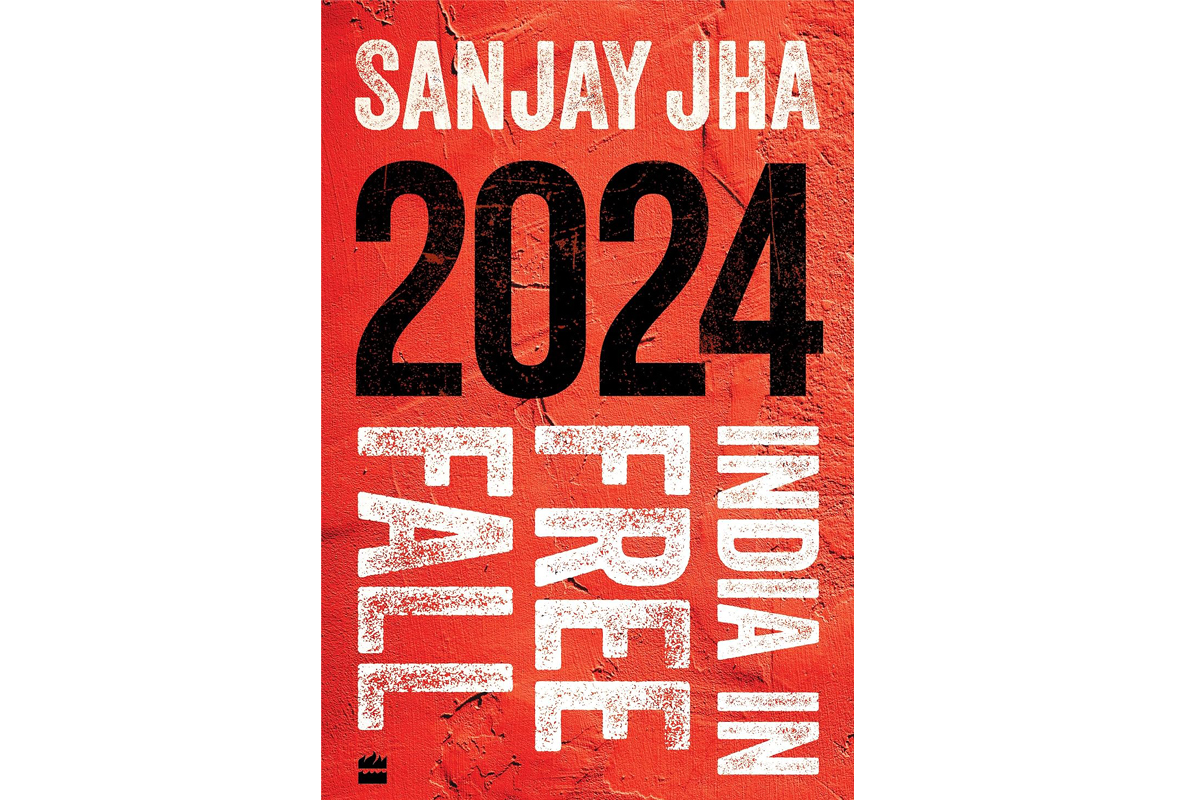This book is a trenchant critique of the BJP’s current period in office by Sanjay Jha, a former Congress spokesman. He regrets that “people have acquiesced with repressive regimes by popular choice” and cites the Pegasus spying scandal and the use of the CBI and ED as “barefaced authoritarianism of a repressive regime… India’s criminal justice system needs a herculean makeover.” Out of 129 cases in 2019–23, 95 per cent were against opposition persons. And UAPA has been “wantonly abused”.
Jha writes, “To reconstruct or recalibrate a nation, continuity in office is a prerequisite… [but] rare is the strongman leader who grows less autocratic the longer he stays in office.” Modi and the BJP are helped by a fawning media, a fractured opposition and a tolerant middle class, and the “Electoral bonds is… a daylight heist” as was the PM-Cares fund when Modi rebuffed calls for transparency. Jha says Modi has successfully normalised intimidation, lynching, hate speeches, cronyism, fake news, and communal stress, and interestingly points out that the BJP in 2004 opposed UP Chief Minister Mulayam Yadav’s move to replace India with “Bharat”.
Advertisement
“Politicians are an extremely insecure bunch,” writes Jha, “but for some …it borders on paranoia.” BJP dislikes being interrogated with tough questions. The common habit of authoritarian demagogues is to appear always in command, infallible, an example of perfection, but at moments of crisis they are missing in action. In the largest democracy, Prime Minister Modi has never held a press conference.
The health of a democracy is determined by the integrity and independence of its institutions. Capital-intensive projects on a public-private model “have an intrinsic nepotism built into them”, but SEBI’s “stupefying silence on Adani’s irrational, exponential wealth gain was inexplicable”, considering that his wealth rose from $4.5 billion in 2014 to $150 billion in 2022. Jha concludes that “Adani and Modi go together. Their sharp vertical progression simultaneously was not a celestial coincidence.”
Jha enumerates the BJP’s failings as he views them: religious loathing, demonetisation, GST, farmer distress, Covid lockdown, internet shutdowns, targeting of journalists, arrests of comedians, harassment of the opposition, religious persecution, unemployment, crony capitalism, majoritarian politics, and challenges to the Places of Worship Act 1991. Religious fundamentalists could challenge constitutional propriety with “insouciant ease” with the illegal use of bulldozers against dissidents and campaigns against hijab, halal, beef, azan, love jihad, ghar wapsi, lynching and meat eating.
During Covid, Trump, Bolsonaro and Johnson suffered political setbacks, but “for Modi it was a gold medal” despite WHO recording 4.7 million deaths, about nine times the official Indian figure. “Modi may be remembered as the premier in whose tenure the Ram temple was built, but for Ram Rajya, India will have to wait for another prime minister… There is little to cheer for one that had ten long uninterrupted years and a full majority in Parliament…In any other democratic country the BJP government would have been on its last legs.”
The fake news industry has grown by leaps and bounds under the tutelage of the BJP. Both The Kerala Story and The Kashmir Files propagated lies. The minority Muslims are vilified though a soft target, and non-vegetarian food has become offensive to the majority. Majoritarian populism abounds in South Asia—Bangladesh, Nepal, Pakistan, Bhutan and Sri Lanka. Jha tellingly points out that Sikhs were targeted after Indira Gandhi’s assassination in 1984, and Muslims brutally attacked in Modi’s Gujarat, yet both Rajiv Gandhi and Modi won elections, so “India has an ersatz democracy corrupted at the core.”
The BJP wishes to destroy opposition parties, accusing them of dynastic domination, corruption and incompetence, as being anti-national, anti-Hindu, pro-Pakistan and anti-development. It was important that the Congress-led opposition treat the BJP’s defeat not as an election objective but as a national responsibility.
Modern India is, at its core, a Congress construct. To Congress are due RTI, RTE, MGNREGA, Land Acquisition, National Health Mission, Aadhar, Direct Benefits Transfer, Lok Pal, Food Security Act, the revised farm bills, GST and Jan Dhan. But the Congress in opposition is “plagued by internal hubris [and] incremental fiddling” and leaves the author distressed. Congress is consumed by fear and dodges the Hinduism versus Hindutva debate. Its second malaise is its leadership. Here, Jha badly errs in visualising Nitish Kumar of Bihar as a prospective leader for the opposition, writing, “He would end up giving the struggling opposition a potent political weapon.” This prediction is now overtaken by Kumar’s defection to the BJP.
This is an accusatory book, with Modi and the BJP as its targets, written in a florid and often convoluted prose style with an arcane vocabulary that would give Shashi Tharoor a run for his money. Words like fustian, monopsonist, foofaraw, puffery, sparling, orthogonal, dorky, taradiddle, occultist, foxy, dedolomitization, lambent and arcadian impel the reader to have a dictionary to hand. Whether this helps the author’s argument or not is best left for the reader to answer.
The reviewer is a former foreign secretary.











